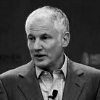Democracy expert, Tom Carothers, takes us on a journey highlighting the disruption to democracy around the world over the past decade. Using the United States as a case study he looks at the cultural and economic drivers of democracy, and importantly its prospects for survival.

Thomas Carothers
Harvey V. Fineberg Chair for democracy studies, Carnegie Endowment for International Peace
Thomas Carothers is senior vice president for studies at the Carnegie Endowment for International Peace. In that capacity he oversees all of the research programs at Carnegie. He also directs the democracy, conflict, and governance program and carries out research and writing on democracy-related issues.
Carothers is a leading authority on international support for democracy, human rights, governance, the rule of law, and civil society. He has worked on democracy assistance projects for many organisations and carried out extensive field research on aid efforts around the world.
He is the author or editor of 10 critically acclaimed books and many articles in prominent journals and newspapers, including most recently, Democracies Divided: The Global Challenge of Political Polarization (Brookings Press, 2019, co-edited with Andrew O’Donohue). He has been a visiting faculty member at the Central European University in Budapest, Nuffield College, Oxford University, and Johns Hopkins SAIS.
Prior to joining the endowment, Carothers practiced international and financial law at Arnold & Porter and served as an attorney adviser in the office of the legal adviser of the US Department of State.

Stephen Kotkin
Professor in history and international affairs, Princeton University
Professor Kotkin received his PhD from the University of California, Berkeley in 1988, and has been a professor at Princeton since 1989. He is also a senior fellow at the Hoover Institution at Stanford University.
At Princeton Professor Kotkin teaches courses in geopolitics, modern authoritarianism, global history, and Soviet Eurasia, and has won all of the university’s teaching awards. He has served as the vice dean of Princeton’s Woodrow Wilson School of Public and International Affairs, and chaired the editorial committee of Princeton University Press. Outside Princeton, he writes essays and reviews for Foreign Affairs, the Wall Street Journal, and the Times Literary Supplement, among other publications, and was the regular book reviewer for the New York Times Sunday Business section for many years. He serves as an invited consultant to defence ministries and intelligence agencies in multiple countries. His latest book is Stalin: Waiting for Hitler, 1929-1941 (Penguin, 2017). His previous book was a finalist for the Pulitzer Prize.
Key takeaways
Thomas Carothers
- There is a lot of bad news about democracy but in our increasing gloom over the state of democracy we are making the mistake of overfeeling and underthinking
- Three big things have been happening with democracy in the last 15 years that contribute towards something approaching a global crisis of democracy:
1) Traditional democracies are experiencing a surprising amount of democratic unrest
2) Key big non-Western democracies that were expected to drive democracy have faltered
3) China and Russia have continued on a path of their own
- In the last ten years there have been more mass protests against governments than any ten years in history, driven by 1) economic marginalisation 2) corruption and 3) politicians stretching their reach or tenure too far.
- Citizens are striving for more and governments are striving (but often failing) to deliver more.
- There is no intangible crisis of democracy, rather democracy is driven by clear tangible measures – 1) is there a fair system of electing leaders? 2) are leaders representative of the people? 3) are leaders accountable with constraints on their power? and 4) do leaders show basic competence?
- In the US the people vs the elite is a reality. There is also huge left vs right divide. But these extreme polarisations prevent the required steps to alleviate systemic issues of imbalance.
- Deep democratic problems need to be managed, not solved. We should not take a big bang approach, we should tackle five to ten small- to medium-sized issues one at a time.
- The US needs to shift its mindset to present its issues and work together with other countries to collaborate on a solution, rather than presenting an area of strength to push to other regions. This more neutral, more humble approach targeting modest reform in a quiet way will help the US regain global credibility.



